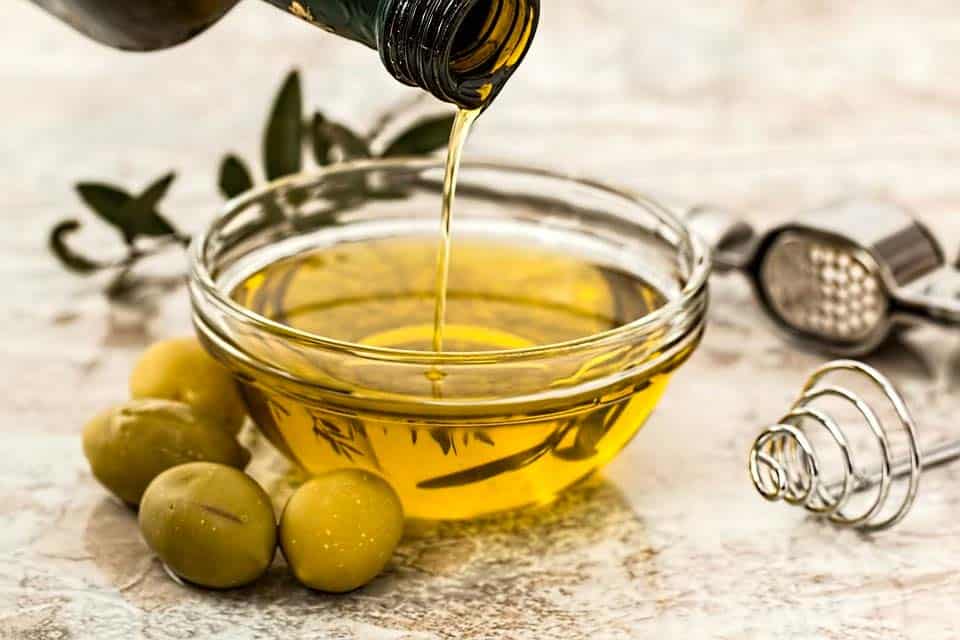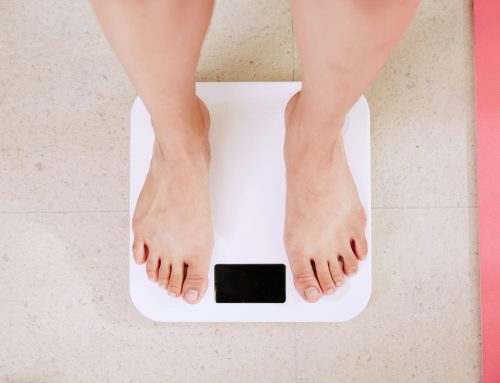Olives have long been lauded as a superfood that you should eat regularly. However, olives are very high in both fat and calories, so perhaps they aren’t as good for us as we might think.
To set the record straight on this matter, we’ll give you all the information you need about olives. We’ll let you know if olives are, indeed, a healthy food choice, or if you should steer clear of this Mediterranean delight.
Contents
What Are Olives?
Before we get too far ahead of ourselves, let’s talk a bit about what olives actually are. An olive is a small fruit (botanical name Olea europaea), known as a “drupe,” with a hard pit in the center.
There are many different varieties of olives sold in stores. But, interestingly enough, the color of the olive has nothing to do with its variety. In fact, green olives are just the unripe version of the fruit! Green olives will usually be picked around the start of the harvest season, while black olives will be picked a few months later and provide a sweeter taste.
These days, you can buy olives fresh, cured in brine, stuffed, or made into oil. Olives and their by-products are an incredibly popular ingredient in recipes, so chances are pretty high that you’ve had one before.
History of Olives
Olives have been a food source for humans for thousands of years. There’s evidence that humans cultivated the fruit for more than 7,000 years, particularly in places like Italy, Portugal, southern France, Greece, Turkey, Tunisia, Morocco, and Spain.
The olive and its by-products, such as olive oil, are a long-standing part of the “Mediterranean diet.” In addition to olives, the Mediterranean diet includes large quantities of fruits, vegetables, fish, cheese, yogurt, bread, and chicken.
The Mediterranean diet and, in particular olives, have gained a lot of popularity outside southern Europe and Northern Africa. This is because many studies have linked the diet to a decreased risk of developing heart disease, cancer, diabetes, and other ailments commonly found in the Western world.
Are Olives Healthy?
Although some people swear by olives and eat them in surprisingly large quantities, others try to avoid them. So, what’s the deal? Are olives healthy or not?
Let’s look at some green and black olives nutrition facts, based on a .7oz (20g) serving, which is about 5 olives.
Green Olives
- Calories: 33
- Calories From Fat: 4
- Total Fat: 2g
- Cholesterol: 0mg
- Sodium: 8mg
- Carbohydrates: 3g
- Dietary Fiber: 0g
- Sugars: 0g
- Protein: 0g
(Source: California Olives)
Black Olives
- Calories: 56
- Calories From Fat: 9
- Total Fat: 3g
- Cholesterol: 0mg
- Sodium: 320mg
- Carbohydrates: 89g
- Dietary Fiber:1g
- Sugars: 0
- Protein: 4g
(Source: University of North Dakota)
Are Olives Fattening?
As you can see from the nutrition facts, olives are quite high in fat. However, just because a food has a high fat continent, doesn’t mean it’s bad for you.
In fact, olives are made of about 80% water and 10-15% fat. The vast majority of the fat in olives is a monounsaturated fat called “oleic acid,” which has been linked to a decreased risk of developing heart disease and other inflammation.
While many people think of olives as a fattening food, they are made of a good type of fat that has some health benefits. Plus, our bodies need fat in our diet. Fats contain essential fatty acids that we can’t make on our own. Fat is also used by the body to absorb vital nutrients such as vitamins A, D, and E.
Sodium In Olives
While many people think that the high-fat content in olives makes them unhealthy, it turns out that sodium is really the fruit’s downfall. According to Harvard Medical School, a salt-heavy diet can lead to an increased risk of hypertension (high blood pressure) and heart disease.
However, olives are not naturally high in sodium. In reality, olives get most of their sodium from the brine that they’re cured in. So, if you love olives but don’t want to consume massive amounts of salt, you can always buy fresh olives or olives soaked in water, instead.
Other Nutrients In Olives
Besides being high in healthy fats, olives are chock-full of other nutrients. These nutrients include:
- Iron. Black olives are high in iron, which is critical for getting enough oxygen to your body.
- Copper is an essential trace mineral that we often lack in a Western diet. Olives are fairly high in copper, which our body needs to create red blood cells.
- Calcium is vital for healthy bones and for staving off the effects of osteoporosis.
- Vitamin E. Vitamin E helps boost our immune system so we can fight off infections.
- Olives are high in polyphenols, which have anti-inflammatory effects.
Is Olive Oil Healthy?
Although olives themselves are a fairly common food, they’re nowhere near as popular as olive oil. A 2014 study found that people in Greece, on average, consume 20 liters (5.2 gallons) of olive oil each year. When you consider the fact that you need about 5,200-8,000 olives to make one liter of olive oil, people in Greece are consuming a whole lot of olives on a regular basis.
But, while olive oil is popular, is it good for you? Here are the nutrition facts for olive oil, based on a 1tsp (4.5g) serving size:
Olive Oil
- Serving Size: 1tsp (4.5g)
- Calories: 8
- Calories From Fat: 8
- Total Fat: 5g
- Cholesterol: 0mg
- Sodium: 09mg
- Carbohydrates: 0g
- Dietary Fiber: 0g
- Sugars: 0
- Protein: 0g
(Source: USDA)
Like any oil, olive oil is very high in fat. It’s 100% fat. But, as we’ve mentioned, just because something is full of fats doesn’t mean it’s unhealthy.
Olive oil is full of the same healthy fats that we find in olives. It also contains decent amounts of vitamin E, antioxidants, and many of the nutrients we find in unprocessed olives.
However, olive oil is high in calories, so it’s not a miracle food. Since we gain weight when we consume more calories than we burn, consuming too many calories (even if they’re from a healthy food like olive oil) can cause us to put on some extra weight.
When compared to alternative cooking oils and fats, like canola oil and butter, olive oil has way more health benefits. While we should always eat food in moderation, olive oil is a decent choice for general cooking and eating.
The Verdict: To Eat Or Not To Eat
At the end of the day, olives are a healthy and nutritious food source. While they are high in fat, the type of fat found in olives is about as healthy as it gets. Plus, olives and olive oil have many essential nutrients, minerals, and elements that are hard to find in other foods. So, while we should always eat everything in moderation, there’s no reason why you can enjoy olives and olive oil on a regular basis.








Leave A Comment